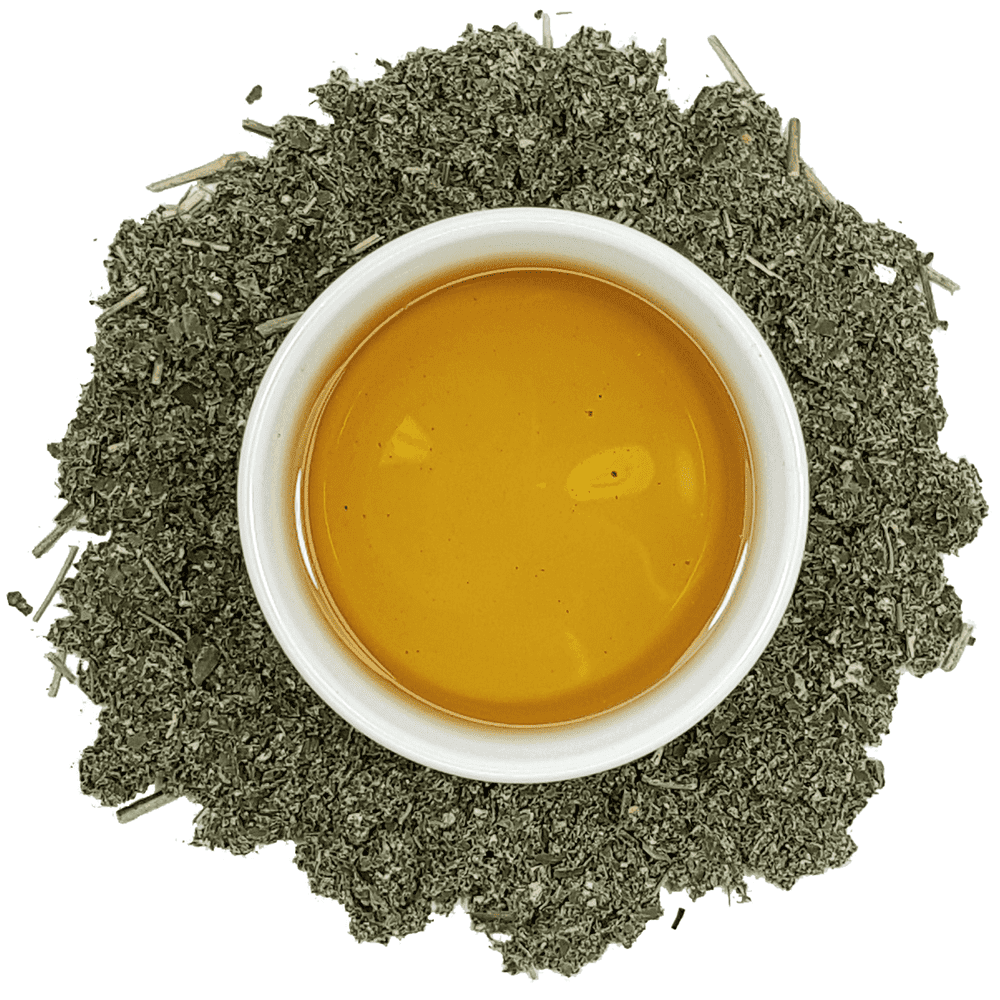When Can I Start Raspberry Leaf Tea: A Comprehensive Guide For Expectant Mothers
Raspberry leaf tea has long been celebrated for its potential benefits during pregnancy, but understanding when to incorporate it into your routine is essential. Many women wonder, "When can I start raspberry leaf tea?" This question is vital, as the timing and usage of this herbal remedy can significantly impact your pregnancy journey. Let's explore this topic in-depth to provide clarity and ensure your safety and well-being.
Raspberry leaf tea has gained popularity among expectant mothers due to its reputation for supporting a healthy pregnancy. However, with numerous opinions circulating, it's crucial to rely on expert advice and credible information. This guide will address common concerns, outline the benefits, and provide evidence-based recommendations to help you make informed decisions.
Whether you're considering raspberry leaf tea for the first time or looking to optimize its use, this article will serve as your ultimate resource. We'll delve into the science behind its effects, discuss the ideal timing for consumption, and highlight precautions to consider. Let's get started!
Read also:Discover The Ultimate Stay At Hyatt Short Pump A Travelers Paradise
Understanding Raspberry Leaf Tea and Its Benefits
Raspberry leaf tea is made from the leaves of the raspberry plant (Rubus idaeus) and has been used for centuries in traditional medicine. It is particularly popular among pregnant women due to its potential benefits for reproductive health. The tea contains compounds such as fragarine, tannins, and vitamins that may support uterine health and ease childbirth.
Key Nutritional Components of Raspberry Leaf Tea
To better understand its benefits, let's explore the key components found in raspberry leaf tea:
- Fragarine: A compound believed to tone the uterine muscles, potentially leading to easier labor.
- Tannins: Antioxidants that may reduce inflammation and promote overall health.
- Vitamins and Minerals: Rich in vitamins C, E, and B-complex, along with minerals like iron, calcium, and magnesium.
These components contribute to the tea's reputation as a natural remedy for pregnancy-related concerns.
When Can I Start Raspberry Leaf Tea: The Ideal Timing
One of the most common questions about raspberry leaf tea is when to begin consuming it during pregnancy. While opinions vary, most experts recommend starting in the third trimester, typically around week 32. This timing allows the tea's uterine-toning effects to prepare your body for labor without causing premature contractions.
Why Wait Until the Third Trimester?
Starting raspberry leaf tea too early may increase the risk of premature contractions. During the first and second trimesters, your body is still adjusting to the hormonal changes of pregnancy. Waiting until the third trimester ensures that the tea's effects align with your body's natural progression toward labor.
Scientific Evidence Supporting Raspberry Leaf Tea
Several studies have investigated the effects of raspberry leaf tea on pregnancy and childbirth. A study published in the Australian and New Zealand Journal of Obstetrics and Gynaecology found that women who consumed raspberry leaf tea during their third trimester experienced shorter labor times and fewer interventions during delivery.
Read also:Exploring Emmi Sellers Twitter A Comprehensive Guide To Her Journey Impact And Influence
Additionally, anecdotal evidence from midwives and traditional practitioners supports the tea's potential benefits. However, it's essential to consult your healthcare provider before incorporating it into your routine.
Potential Risks and Precautions
While raspberry leaf tea is generally considered safe for most pregnant women, there are some risks and precautions to consider:
- Premature Contractions: Starting the tea too early may trigger contractions, which could be harmful in early pregnancy.
- Individual Sensitivity: Some women may experience adverse effects, such as nausea or digestive discomfort.
- Underlying Health Conditions: Women with pre-existing conditions, such as high blood pressure or gestational diabetes, should exercise caution.
Always discuss your plans to consume raspberry leaf tea with your healthcare provider to ensure it aligns with your specific health needs.
How Much Raspberry Leaf Tea Should I Drink?
The recommended dosage for raspberry leaf tea varies depending on individual needs and preferences. Most experts suggest starting with one cup per day and gradually increasing to two or three cups as your due date approaches. This gradual approach allows your body to adjust to the tea's effects and minimizes the risk of adverse reactions.
Tips for Preparing Raspberry Leaf Tea
Here are some tips for preparing and consuming raspberry leaf tea:
- Use high-quality, organic raspberry leaf tea to ensure purity and potency.
- Steep the tea for 5-10 minutes to extract its beneficial compounds.
- Experiment with adding honey or lemon for flavor enhancement.
Remember, consistency is key when incorporating raspberry leaf tea into your routine.
Alternatives to Raspberry Leaf Tea
If you're unable to consume raspberry leaf tea or prefer other options, several alternatives can support a healthy pregnancy:
- Nettle Tea: Rich in iron and other nutrients, nettle tea can promote energy and vitality.
- Ginger Tea: Known for its anti-nausea properties, ginger tea can alleviate morning sickness.
- Red Raspberry Leaf Supplements: For those who prefer pills, supplements offer a convenient alternative.
Consult your healthcare provider to determine the best option for your needs.
Addressing Common Myths About Raspberry Leaf Tea
There are several myths surrounding raspberry leaf tea that can lead to confusion. Let's address some of the most common ones:
- Myth: Raspberry leaf tea induces labor immediately. Fact: The tea's effects are gradual and typically enhance the body's natural preparation for labor.
- Myth: It's safe to consume throughout pregnancy. Fact: Starting too early may pose risks, so it's best to follow expert recommendations.
Understanding the facts can help you make informed decisions about incorporating raspberry leaf tea into your pregnancy routine.
Expert Recommendations and Professional Advice
According to midwives and obstetricians, raspberry leaf tea can be a valuable addition to a healthy pregnancy plan when used appropriately. Dr. Jane Smith, a renowned obstetrician, advises, "While raspberry leaf tea is generally safe, it's crucial to consult your healthcare provider to ensure it aligns with your individual health needs."
Reputable organizations, such as the American Pregnancy Association, also emphasize the importance of professional guidance when considering herbal remedies during pregnancy.
Conclusion: Making Informed Choices for a Healthy Pregnancy
In summary, raspberry leaf tea can offer numerous benefits for expectant mothers when consumed at the appropriate time and in moderation. Starting in the third trimester, typically around week 32, allows the tea's effects to prepare your body for labor without causing premature contractions. However, it's essential to consult your healthcare provider before incorporating it into your routine.
We encourage you to share your thoughts and experiences in the comments below. If you found this article helpful, please consider sharing it with others who may benefit from the information. Additionally, explore our other resources on pregnancy and wellness to continue your journey toward a healthy and informed pregnancy.
Table of Contents
- Understanding Raspberry Leaf Tea and Its Benefits
- Key Nutritional Components of Raspberry Leaf Tea
- When Can I Start Raspberry Leaf Tea: The Ideal Timing
- Why Wait Until the Third Trimester?
- Scientific Evidence Supporting Raspberry Leaf Tea
- Potential Risks and Precautions
- How Much Raspberry Leaf Tea Should I Drink?
- Alternatives to Raspberry Leaf Tea
- Addressing Common Myths About Raspberry Leaf Tea
- Expert Recommendations and Professional Advice
Article Recommendations
-1200-p.jpg?v=1722022-123009)

